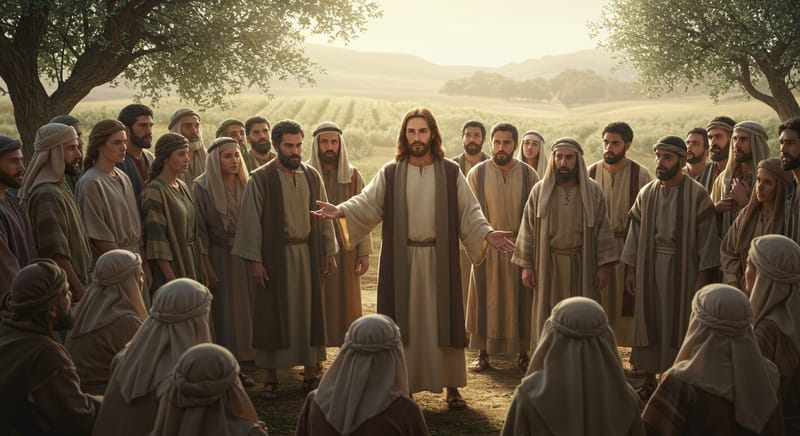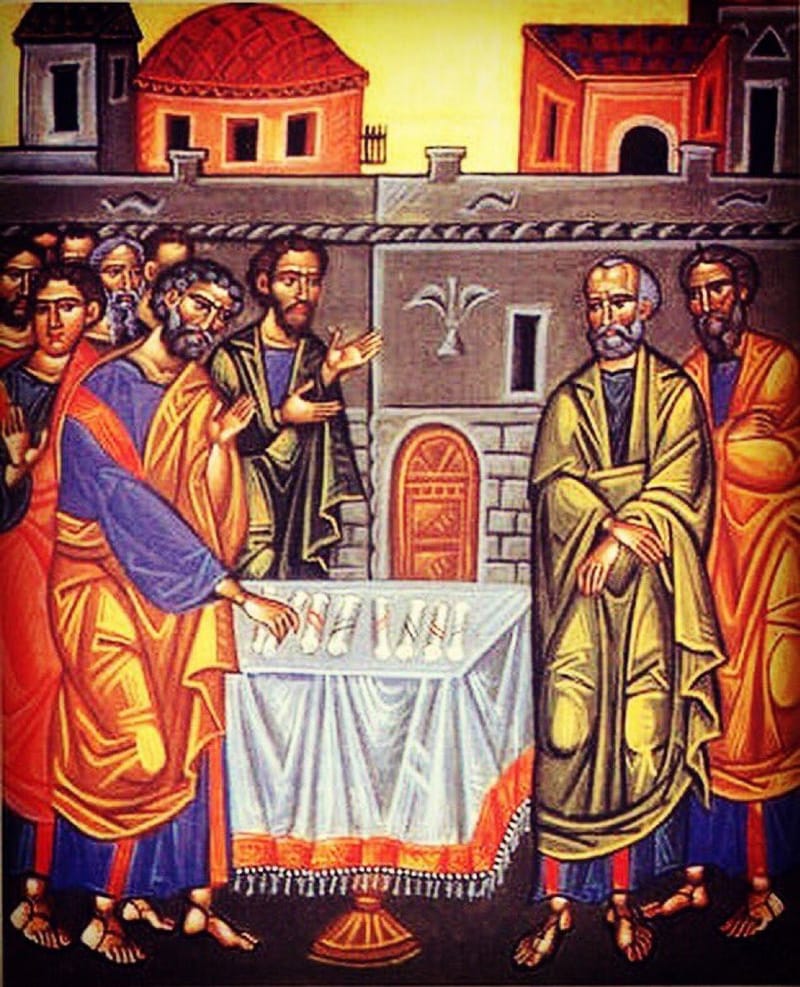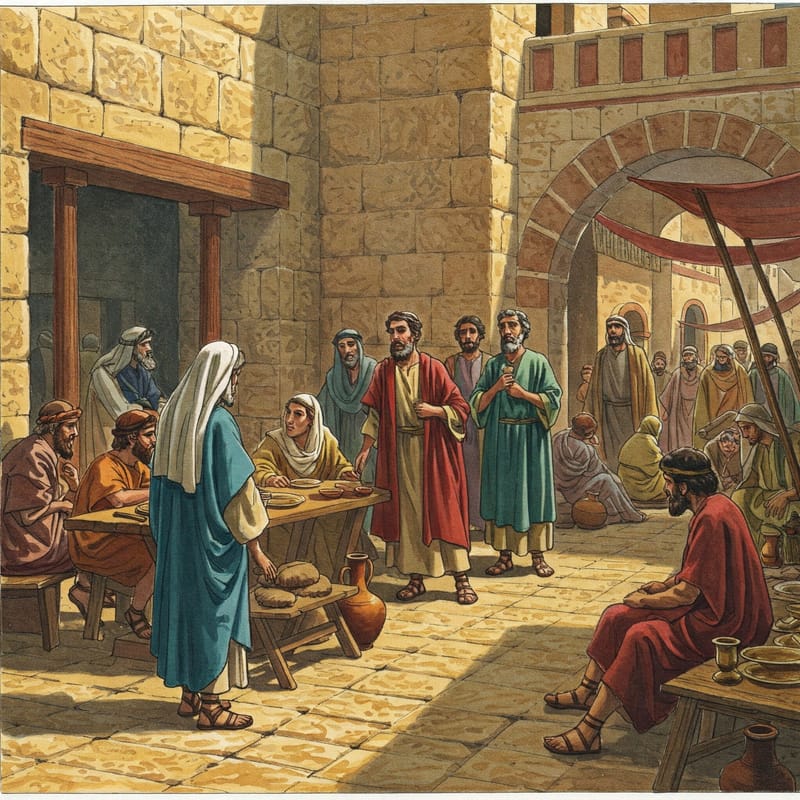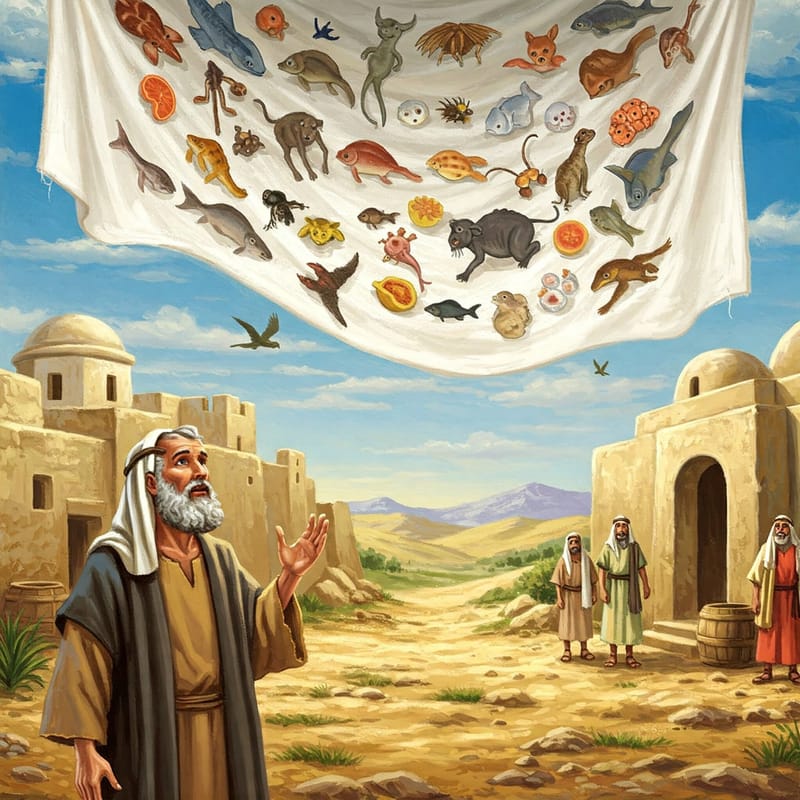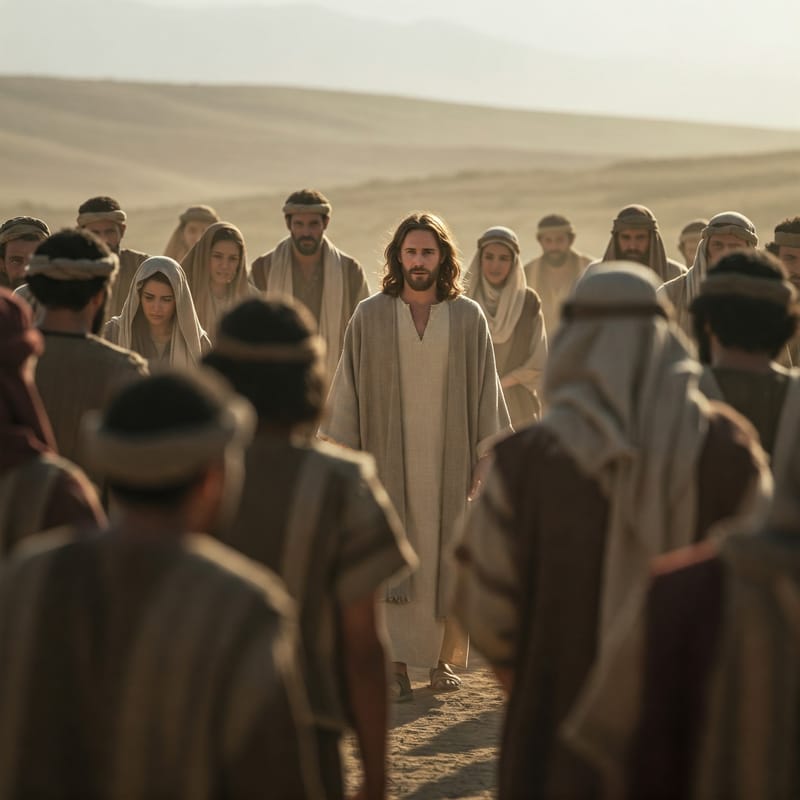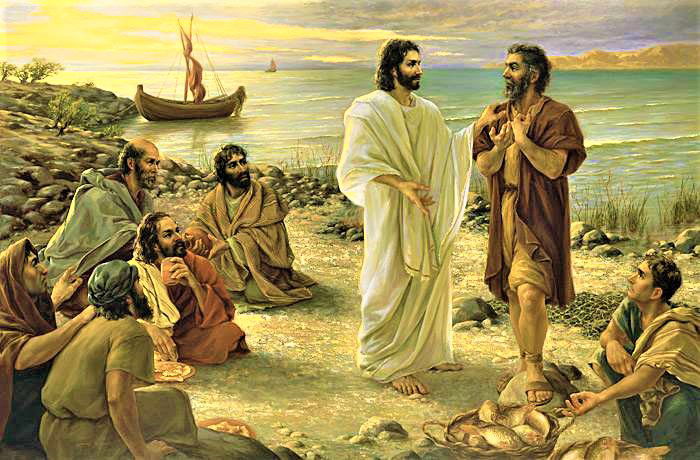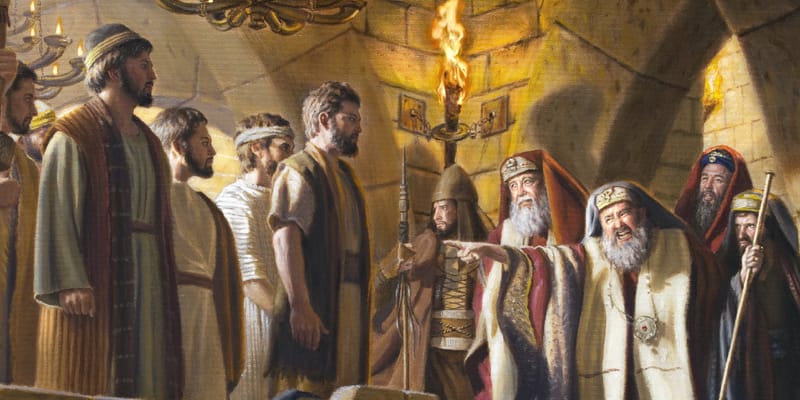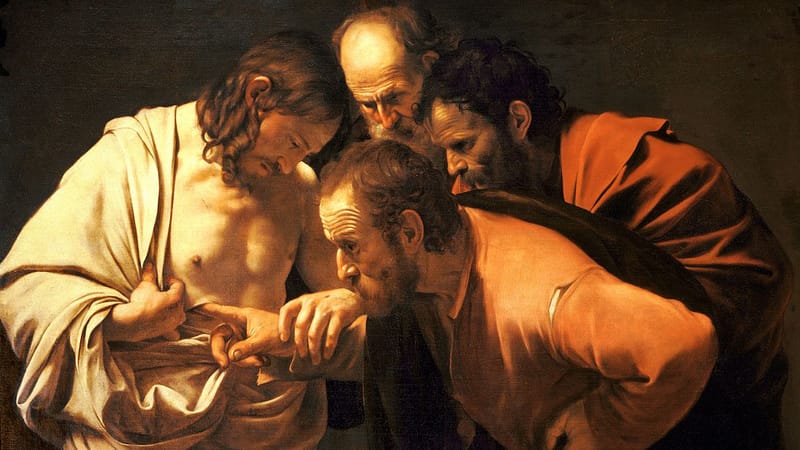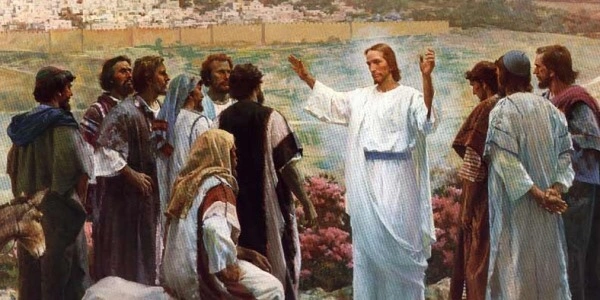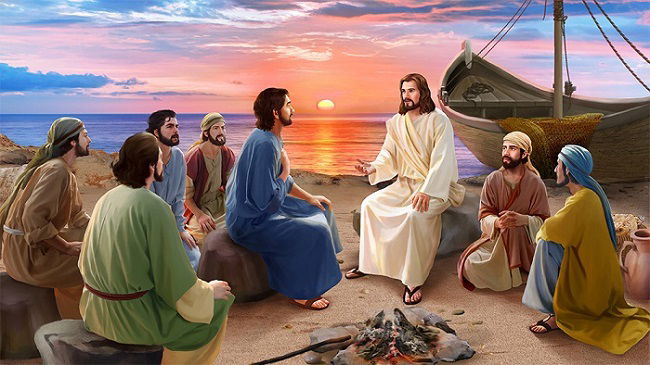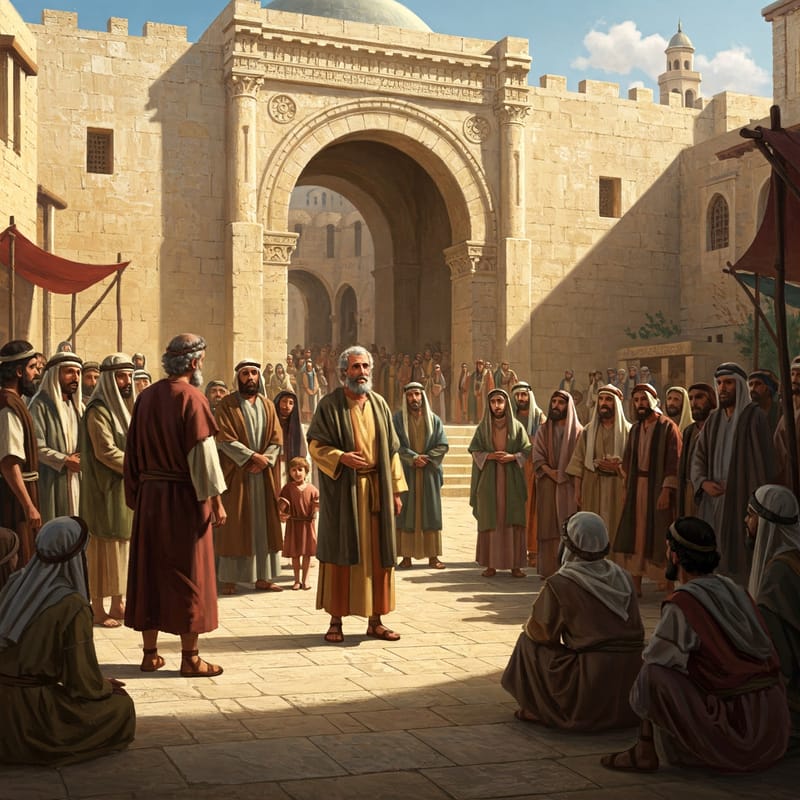DAILY HOMILIES #Peter
“If you abide in me, and my words abide in you, ask whatever you will, and it shall be done for you. By this my Father is glorified, that you bear much fruit, and so prove to be my disciples.” (John 15:7-8). As a Christian, remember that you are a missionary. In other words, aim for productivity and fruitfulness. Beyond doing your job excellently, strive to win souls for God.
Read MoreWhile addressing the believers, Peter said: “Brethren, the scripture had to be fulfilled, which the Holy Spirit spoke beforehand by the mouth of David, concerning Judas… His office let another take.” (Acts 1:16 & 20). In other words, the office is indispensable, but the office holder can be replaced anytime. No matter the position you occupy, there is someone who can take your place and even do a better job. Please do your best, but take it easy; no matter how good you are, you cannot be there forever. As Matthias was elected to the office once held by Judas Iscariot, all other apostles were eventually replaced by others.
Read MoreThe Church in Antioch was vibrant because it was a church of converts. Barnabas knew Antioch was the best place for Saul’s faith formation after converting to the faith. Converts do better than traditional Christians. They are on fire for God; having willingly left their past lives behind, they do not mind going to extreme lengths to live out their faith. Converts are like persons falling in love for the first time; there is no pretence. The believers were called Christians because they lived like Christ.
Read MorePeter’s experience also reminds us of Jesus’ warning to the Jews: “Do not presume to say to yourselves, ‘We have Abraham as our father’; for I tell you, God is able, from these stones, to raise children to Abraham.” (Matthew 3:9). Let us avoid pride. The fact that someone is not a church member does not mean they don’t have access to God. To successfully convert a person, you must respect and recognise their previous beliefs.
Read MoreBy asking if the twelve wished to leave, Jesus was testing their commitment. Like the crowd, Jesus knew that the twelve did not understand the Eucharist, but He wanted to know if their faith was strong enough to withstand tough times. If you cannot endure the bad times, you won’t be around to enjoy the good times. If Peter had walked away from Jesus when He taught about the Eucharist, would he perform signs and wonders in today’s first reading?
Read MoreThe last line of today’ First Reading states: “Then they left the presence of the council rejoicing that they were counted worthy to suffer dishonour for the name.” (Acts 5:41) The early Christian Church understood completely that following Christ meant denying themselves and taking up their crosses daily. (Cf. Mat. 16:24, Mark 8:34, Luke 9:23). They succeeded largely because their love for God was not predicated on material prosperity but on the hope of eternal glory. They were willing to store treasures in heaven where moths and rust could not consume them and thieves could not break in and steal. (Cf. Matt 6:19)
Read MoreI praise the courage of Peter, who spoke on behalf of the apostles: “We must obey God rather than men. The God of our fathers raised Jesus, WHOM YOU KILLED by hanging him on a tree. God exalted him at his right hand as Leader and Saviour, to give repentance to Israel and forgiveness of sins.” (Acts 5:29-31).
Read MoreWhen we go for confession, God forgives our sins and washes us so that we can confidently say we become new creatures. God does not remember our sins because the moment we offload them at the confessional, our old self dies, and we leave as newborn babies. Just as you cannot accuse an infant of sin, God no longer accuses us of the sins that we have dropped at the confessional. Never be too shy to go to confession; it is not the priest who forgives us, but Jesus Christ who gave the priest the power to retain or absolve sins in His name.
Read MoreWhen the authorities told Peter and John never to speak again in the name of Jesus, Peter said: “Whether it is right in God’s sight to listen to you rather than to God, you must judge; for we cannot keep from speaking about what we have seen and heard.” (Acts 4:19-20). Peter and John were aware that they were standing before those who conspired to kill Jesus, but they were not scared of them as much as they were frightened of disobeying God. Peter and John remembered the words of Jesus: “My friends, do not fear those who kill the body, and after that have no more that they can do. But I will warn you whom to fear: fear him who, after he has killed, has power to cast into hell; yes, I tell you, fear him!” (Luke 12:4-5).
Read MorePeter’s failure that night was God’s way of telling Peter that he is called to be a fisher of men (not of fish). It was also God’s way of teaching him about divine providence. Are you experiencing failure in some aspect of your life? It is time to ask: “Am I doing what God wants of me?” If God has given you an assignment, it will be hard to succeed in something else if you abandon God’s call.
Read MorePeter addressed them: “Men of Israel, why do you stare as though we had made him walk by our power or piety?” Never worship God’s ministers; even the devil can heal in the name of Jesus Christ. On the other hand, never assume you are too small (or too sinful) to invoke the name of Jesus Christ. You don’t have to be ordained to be a healer.
Read MoreBy healing the lame man, Peter gave him something beyond silver and gold – healing from paralysis. This man would no longer need to be carried from place to place. He would provide for himself. Value spiritual wealth over financial riches. You may not have all the money you crave, but as long as you have God, you have everything.
Read More